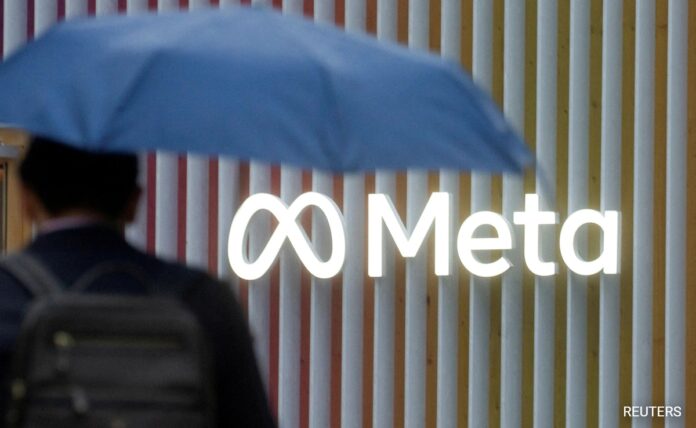Imagine a Facebook and Instagram free from the relentless scroll of ads. Sounds appealing, right? Well, Meta, the tech giant behind these social media behemoths, is considering offering just that – a subscription service that banishes ads for a monthly fee. This potential shakeup, being tested in the UK, could fundamentally change how we interact with these platforms, raising questions about the future of social media and the value we place on ad-free experiences.
Meta’s Monetization Pivot: Charging for Ad-Free Facebook & Instagram in the UK

Meta Platforms, the parent company of Facebook and Instagram, is reportedly exploring a subscription model for UK users who wish to opt out of targeted advertising. This potential shift in strategy mirrors a similar offering already available in the European Union (EU), where users can pay a monthly fee for an ad-free experience. The move comes amidst growing regulatory scrutiny and user concerns over data privacy, following a high-profile lawsuit against Meta in the UK.
The implications of this potential change for user behavior and the overall advertising landscape in the UK are significant and warrant careful consideration.

The Case that Sparked Change
Tanya O’Carroll’s Lawsuit
A key catalyst for this potential shift is a recent lawsuit filed by human rights campaigner Tanya O’Carroll against Meta. O’Carroll successfully argued that Meta had breached UK data laws by collecting and utilizing her personal data for targeted advertising purposes. The case culminated in a settlement, with Meta agreeing to stop targeting O’Carroll with personalized adverts. This settlement, while individual in nature, carries broader implications for Meta’s data practices and highlights the increasing legal pressure on tech giants to safeguard user data and respect privacy rights.
“This is an individual settlement, but I believe its ramifications extend far beyond me. The key factor is the UK data protection authority, which backed my case and has publicly stated that it will support people in the UK who wish to exercise their right to object to online targeted ads,” stated O’Carroll.
Meta and EU Regulations
Meta’s decision to launch an ad-free subscription service in the EU in 2023 reflects the company’s ongoing efforts to comply with evolving regulatory requirements. Notably, the General Data Protection Regulation (GDPR) and the Digital Markets Act (DMA) have significantly impacted how tech companies handle user data and advertising practices. The GDPR, in particular, emphasizes user consent and control over personal information, while the DMA aims to promote fair competition and prevent anti-competitive practices by large tech platforms.
In November 2023, Meta reduced the prices of its subscription services by 40%, suggesting a strategic move to make the ad-free option more accessible to users.
The Value Proposition of Personalized Ads
Despite the growing push for ad-free alternatives, Meta continues to emphasize the value of personalized advertising for both individuals and businesses. The company argues that targeted ads allow users to connect with brands and products that are most relevant to their interests, enhancing their online experience. For businesses, particularly small businesses, personalized ads offer a cost-effective way to reach a targeted audience, maximizing their marketing investment.
According to Meta’s latest quarterly financial results, advertising revenue constitutes over 96% of its total revenue, underscoring the enduring importance of advertising to its core business model.
Balancing User Choice & Revenue Streams
Meta contends that personalized advertisements remain indispensable for both individual users and businesses, particularly small enterprises seeking cost-effective marketing solutions. The company emphasizes that these ads allow people to connect with brands and products that align with their interests, thereby enhancing their online experience.
Moreover, Meta acknowledges the paramount importance of user choice and aims to provide a viable alternative for those who prefer an ad-free environment through its subscription model. This approach seeks to strike a delicate balance between user demand for privacy and Meta’s reliance on advertising revenue.
The Future of Targeted Advertising
Meta’s exploration of a subscription model in the UK raises profound questions about the trajectory of targeted advertising and its role in the digital economy. As user privacy concerns intensify and regulatory frameworks evolve, we may witness a paradigm shift towards more transparent and user-controlled advertising practices.
Evolving Regulatory Landscape
The European Union’s General Data Protection Regulation (GDPR) and the Digital Markets Act (DMA) have already introduced stringent regulations regarding data collection and targeted advertising. These regulations empower users with greater control over their data and necessitate greater transparency from platforms like Meta.
Shifting User Preferences
Consumers are increasingly aware of the implications of data collection and targeted advertising. There is a growing sentiment in favor of privacy and a desire for more control over the type of advertising they encounter.
This shift in user preferences could incentivize platforms to explore alternative revenue models, such as subscription-based services, or to adopt more privacy-centric advertising techniques.
Potential Benefits of a More Ethical Ecosystem
A more ethical and sustainable advertising ecosystem could ultimately benefit both users and businesses. Users would enjoy greater privacy and control over their online experience, while businesses could build stronger relationships with their customers through more targeted and relevant advertising.
This could lead to a more efficient and effective advertising landscape, where consumers are less likely to be bombarded with irrelevant or intrusive ads.
Conclusion
As Meta contemplates charging users for ad-free experiences on Facebook and Instagram in the UK, a significant shift in the digital landscape is unfolding. The key takeaway from this development is that the era of free social media may be coming to an end. The article highlights the potential rationale behind this move, citing the need for Meta to generate revenue in the face of declining ad sales and the increasing cost of content moderation. Furthermore, it suggests that this shift could set a precedent for other social media platforms to follow suit.
The implications of this move are far-reaching and multifaceted. On one hand, it may lead to a more sustainable business model for Meta, allowing the company to continue investing in content moderation and user safety. On the other hand, it may create a two-tiered system, where those who can afford to pay for ad-free experiences have a more pleasant online experience, while those who cannot be subjected to a barrage of ads. This development has significant implications for users, particularly those who rely on social media for information, entertainment, and connection.

